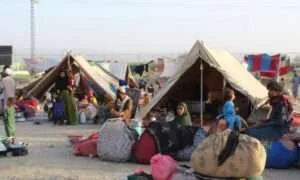Puzzles and Dilemmas
Pakistan is on the cusp of a pivotal electoral transition. In Balochistan’s Intricate Political Scenarios the leaders of this interim setup have proclaimed their commitment to ensuring fair and impartial elections. Simultaneously, they are vigorously pursuing a variety of policy objectives, from deporting foreign nationals, especially Afghan refugees, to combating smuggling along the western borders, including those with Afghanistan and Iran.
They also aim to stabilize the Pakistani rupee’s exchange rate against the US dollar. However, while their intentions appear commendable, concerns are growing that these measures may not be having the desired impact on Balochistan’s Intricate Political Scenarios everyday lives of the people.
One of the notable measures taken by the caretaker government has been the reduction in petrol prices. This decrease is largely attributed to the fluctuations in the international oil market, rather than any specific actions taken by the domestic caretaker government. While this may offer temporary relief to consumers at the gas pump, it does not address the underlying economic challenges facing the nation.
The interim government has initiated a significant operation against electricity and power theft, as well as gas supply theft. While these are commendable efforts to combat illegal practices, their long-term effectiveness remains to be seen. The issue of power theft, especially, has plagued Pakistan for years, and its eradication necessitates sustained efforts and structural reforms.
The deportation of foreign nationals, especially Afghan refugees, is another policy that has drawn considerable attention. While it is essential to ensure that immigration laws are upheld, a compassionate approach should be taken towards those who have fled their war-torn homeland seeking refuge in Pakistan.
The caretaker government should focus on developing a comprehensive strategy that respects international conventions on refugees and offers sustainable solutions rather than abrupt deportations.

One of the most pressing challenges facing the caretaker government is the need to stabilize the exchange rate of the Pakistani rupee against the US dollar. The devaluation of the rupee has led to economic difficulties for the common people, resulting in rising prices for essential goods and services. Addressing this issue is crucial for achieving economic stability, but it requires well-thought-out policies and collaboration with experts in the field.
The other side of the story presents a different set of challenges. The caretaker government’s actions against political parties, particularly in Balochistan, have raised concerns about the impartiality of the electoral process. Caretaker governments are expected to provide a level playing field to all political parties and refrain from taking actions that may influence electoral outcomes.
In the case of Balochistan, there are growing tensions surrounding the caretaker government’s interactions with the Balochistan National Party (BNP) and its leader, Sardar Akhtar Jan Mengal. According to the established mandate, the interim setup does not possess the power to take action against any political party.
Still, it must ensure equal and fair treatment for all, including the BNP. Sardar Akhtar Jan Mengal enjoys significant popularity and influence in Balochistan, and any attempt to undermine his political presence could lead to unrest and instability in the province.
The recent announcement of a long march by Sardar Akhtar Jan Mengal from his hometown of Wadh to the provincial capital, Quetta, reflects the rising tensions in the region. The caretaker government must exercise caution and tread carefully, ensuring that its actions do not inadvertently stoke the flames of political turmoil in Balochistan.
With the interim government already in charge, Pakistan faces a challenging balancing act. While they have voiced their commitment to fair elections and various policy objectives, they must be mindful of the potential consequences of their actions. Stabilizing the economy, addressing smuggling, and handling immigration matters are essential, but these issues should be approached with a comprehensive and long-term perspective.
When it comes to dealing with political parties, the caretaker government must uphold its mandate and ensure that all parties are treated fairly, irrespective of their popularity or influence. The success of the caretaker government will ultimately be measured by the fairness and transparency of the upcoming elections and their ability to navigate these complex issues with wisdom and prudence.


